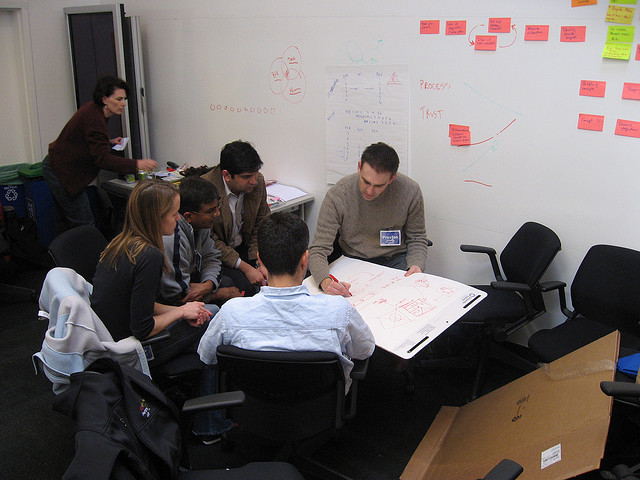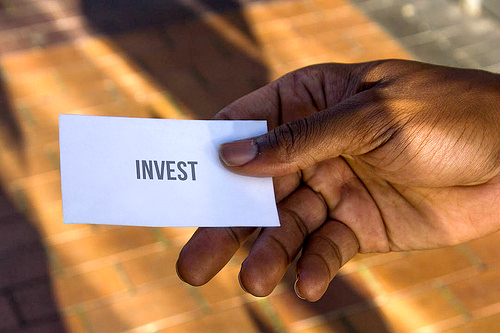A daylong summit on Nov. 10 will teach immigrant entrepreneurs how to overcome obstacles in business. Individuals like Betty Garcia embraces the term “immigrant entrepreneur” as a badge of pride. She says her family hasn’t had it as easy as native-born Americans in turning Tortilleria Sonora, whose name hints at both the product and her family’s origins, into a successful business. “It’s important to recognize backgrounds,” said Garcia, 37, who has helped her Mexican parents run the Des Moines shop for the last four years. “Not to put any other culture down, but Americans have it easier because they are more knowledgeable about the system and have grown up with more tools and resources.” Garcia’s family will receive the Outstanding Immigrant Business Award at the fifth annual Immigrant Entrepreneurs Summit for their successes.
As the summit celebrates success, experts say cultural differences and the law combine to make it difficult for immigrants to create successful businesses. They say lack of credit impedes access to capital. A cultural divide can discourage entrepreneurs from expanding their businesses and reaching out to wider communities. And, because of immigration law, immigrants educated in the U.S. often must return home to start a business.
Stalled legislation in Congress and programs popping up in Iowa and other places aim to help solve those issues.
Immigrants struggle with startup capital
Access to capital remains one of the biggest obstacles all entrepreneurs face. In the wake of the recession, some banks tightened the number of small business loans they handed out. But for immigrant entrepreneurs, that task is made even more difficult by the fact they don’t have any credit and can sometimes get confused by the forms they must fill out.
“For new immigrant businesses, it’s absolutely impossible to get a loan from a bank,” said Ying Sa, chairwoman of the Immigration Entrepreneurs Summit and one of its co-creators. “Immigrant entrepreneurs, typically, don’t have that luxury. They have to start differently.”
Sa said many rely on their community or themselves to get their business off and running, financially. The summit Saturday will include 15 seminars for entrepreneurs that will cover topics like business and legal risks, as well as insurance education and how to access capital.
The summit created a 12-person committee that chose award winners after sifting through nominations submitted by the community. Sa said the goal was not to single out immigrants. Instead, she said, the summit will help immigrant entrepreneurs.
“We are trying to say that business is a universal language,” she said. “We are all doing business in America, so we want to be respectful of the laws and regulations here. We want all participants to realize their American dream in a way they can feel proud.”
Startup Visa Act could open doors
When Steve Case addressed a Thinc Iowa crowd in Des Moines last month, he promoted legislation that would, essentially, “staple a green card” to diplomas and degrees to keep high-skilled immigrants in the U.S. to start businesses.
He said the Startup Visa Act would not only make it easy for immigrants to stay. The law would also tell them, “We have invested in you by giving you this great education. We need you to … serve and contribute by starting a company or joining a company” in the U.S.
The remarks brought a round of applause from the crowd at the technology and entrepreneurship conference. Under current law, immigrants on a student visa must work for others for several years before attaining residence and being allowed to start their own companies. Or, if they do start a company, they cannot work for the company.
The Startup Visa Act would amend U.S. immigration law to create a new visa category that allows foreign entrepreneurs that meet certain qualifications, including raising money from U.S. investors, to remain in the country. The most recent version of the Senate bill, along with its House counterpart, remains stalled in committee.
Critics say the new law could be ripe for abuse, with U.S. Rep. Lamar Smith, a Texas Republican, last year raising the possibility of immigrants creating a “scheme” business just to receive a visa.
White House officials, meanwhile, have maintained that they would support the act only as part of more comprehensive immigration reform.
Congress is not short on ideas regarding immigrant entrepreneurs, including Smith’s own STEM Jobs Act. But coming to a consensus has been a problem.
Vivek Wadhwa, author of “Immigrant Exodus: Why America is Losing the Global Race to Capture Entrepreneurial Talent,” said current law keeps good entrepreneurs from starting a business in the U.S.
“This is a no-brainer,” Wadhwa said of passing the Startup Visa Act. “It’s held up because our politicians are acting like spoiled teenagers. If one side puts forward a bill, the other side opposes it because they have to.”
Wadhwa, who recently co-authored a study published by the Kauffman Foundation on high tech entrepreneurship, says passing the Startup Visa Act could be the impetus the country needs to help the struggling economy recover.
“Within a year of that bill passing, there would be tens of thousands of new startups created,” he said. “It’s a bill that needs to be passed. What could be more sensible?”
Lawyer says current law is prohibitive
As the law stands now, immigrants have options to consider when starting a business, although many depend upon their country of origin.
The EB5 immigrant investor visa program requires heavy foreign investment in an idea or business, sometimes as much as $1 million, before an entrepreneur can start a business. In addition, the business must create at least 10 U.S. jobs.
The U.S. also has treaties with about 50 countries that allow foreign-born entrepreneurs to remain in the country as they build their business. However, Lori Chesser, an immigration law expert with Des Moines’ DavisBrown Law Firm, said those countries do not include two of the most prominent sources of immigrants, China and India.
Chesser often receives questions from people interested in building a business — and creating jobs — in the U.S.
“Many times, there is no way to convert their idea into a productive business in the U.S.,” said Chesser, who will attend the summit as a speaker. “Sometimes, their faces fall. They are looking for that magic bullet. But it’s not there.” Chesser said a better system must be developed, one that could include the Startup Visa Act, which she said is “better than nothing.”
“It’s frustrating for those of us who see the drive and the energy behind the people coming who want to start their business and want to make a contribution here,” she said. “To see us have to turn them away or channel them and divert their talents into other jobs just for a green card, and delaying their entrepreneurship for years, it’s just a frustrating thing to deal with on a daily basis.”
Continue reading
 Visa Lawyer Blog
Visa Lawyer Blog







